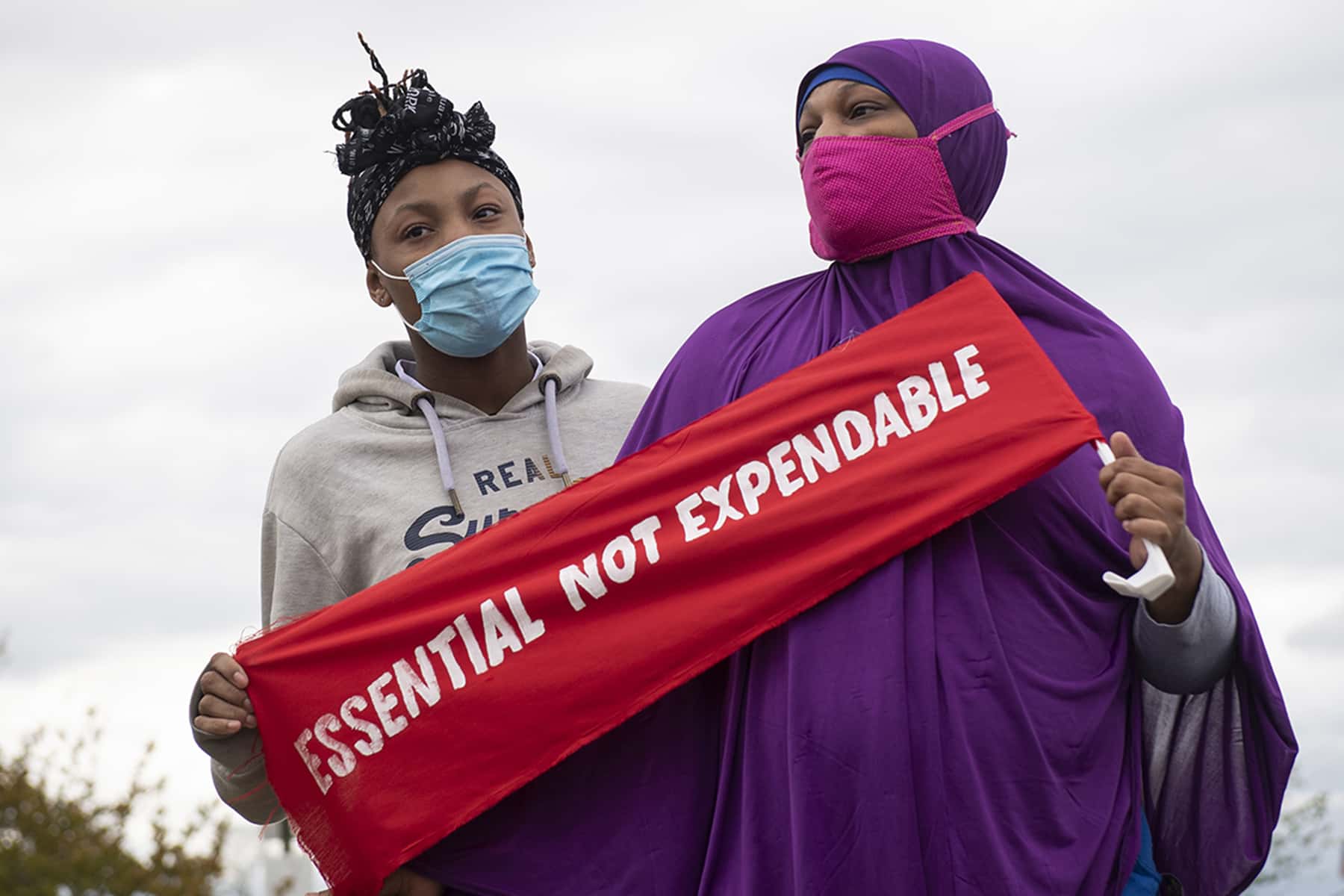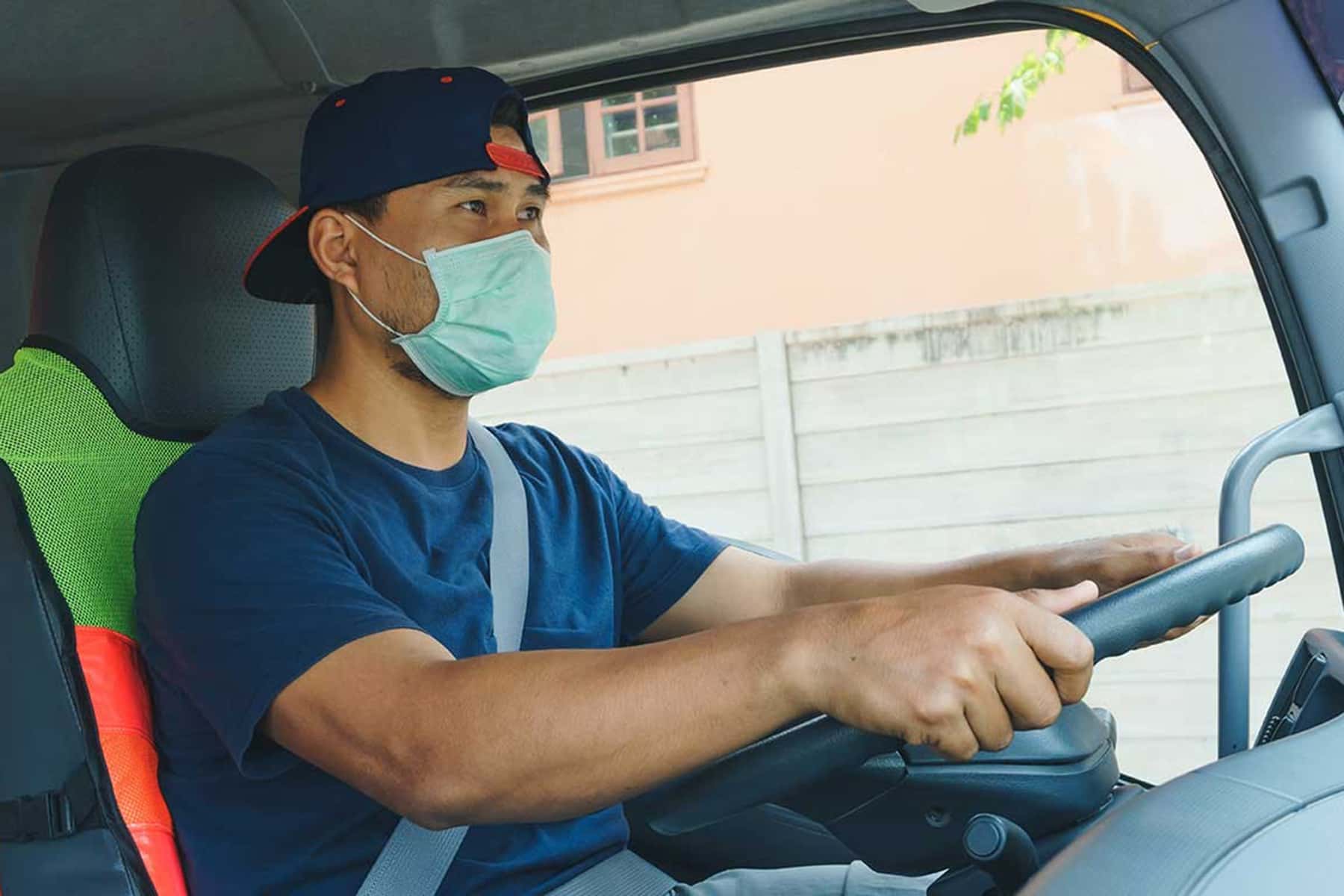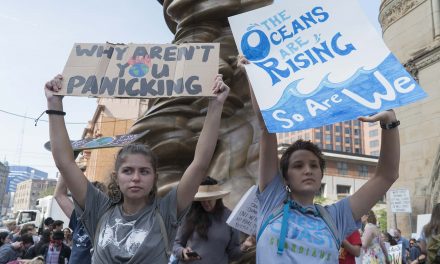
By Zachary Jaggers, Postdoctoral Scholar of Linguistics, University of Oregon
Low-income Americans have borne the brunt of the coronavirus pandemic. They may also get left behind in the recoveryBy this point in the coronavirus pandemic, you’ve probably heard a lot about “essential workers.” They are the people working in hospitals and grocery stores, on farms and in meatpacking plants. They are keeping public transit, shipping and utilities running. But is “essential” describing the workers themselves? Or only the work they do?
Right now, many don’t feel like they’re being treated like they are essential, and workers at Amazon, Walmart and other companies have organized strikes to protest unsafe working conditions. There seems to be a disconnect between how some low-wage workers are being described and what they’re experiencing on the ground.
As an expert in sociolinguistics, I can’t stress enough the importance of framing – how we emphasize perspectives and priorities through our wordings – during a situation like this pandemic. Approaching the phrases “essential workers” and “essential work” with a linguistic eye can help explain why the people doing the work feel cut out of the frame.
Why we’re even saying ‘essential’
Usually, when we say something is essential, we say it’s essential to or for something – for example, “Proper gear is essential for completing this mission.” Normally, almost everyone would say their work is essential for some reason. But because of the pandemic’s immediate threat to human life, essential work is now widely understood as work deemed necessary to meet basic needs of human survival and well-being – food, health, safety and cleaning.
And yet many of the people on the front lines completing this essential work – the so-called “essential workers” – have experienced a lack of adequate safety measures, supplies and risk compensation. Health care workers don’t have enough face masks, and poultry packing plants are crowding workers too close together. Thousands in each sector have contracted COVID-19 – disproportionately people from already disadvantaged groups like African Americans and immigrants.
It makes you wonder whether some of these workers are considered all that essential. Might “expendable” be a more fitting term?
What we’re seeing with the phrase “essential worker” is what linguists call “macrocosmic synecdoche,” which happens when we refer to a bigger thing or group than what we mean. For example, you might say “The U.S. has negotiated a trade deal.” In reality, this means the president, the secretary of commerce and their staffs participated in the negotiation, but not every member of the U.S. population.
What some essential workers are feeling is a case of macrocosmic synecdoche, in which “essential” is only really applying to the “work” part of “worker.”
Essential to what?
Other workers are questioning why their work is even being described as “essential.” In some states, construction has been deemed essential work. But some construction workers think their work isn’t really meeting a basic human need; they have decided to stay home and avoid the risks of showing up at the workplace, despite sacrificing potential income.
Many others, like those working in liquor stores and automotive manufacturing plants, wish they could shelter in place but can’t afford to miss out on the income. They feel their work is really only “essential” to their employers to “help them make money,” as one Walgreens worker put it.
What they are perceiving is what linguists call “metonymy,” when you say something that’s associated with what you mean to refer to but doesn’t actually represent it. Our pandemic-era meaning of “essential work” refers to work that is needed to meet basic human needs and safety while sheltering in place. Many people feel they are putting themselves at risk to do jobs that are sustaining economic vitality but labeled by the government and their employers as “essential” to human vitality.
The tension between human vitality and economic vitality is clear in the ongoing discussions and recent protests about reopening the economy and more in-person business. Many are concerned that economic vitality is at risk if shelter-in-place measures continue too long, framed by concerns that the human vitality of many depends on their economic vitality.
These discussions ought to be centered on how the people on the front lines are affected, and how to best ensure they are well-compensated and protected. Once people are treated as essential, the more accurate the “essential worker” moniker becomes – and the more likely these workers can continue doing the jobs that sustain the rest of society.
Originally published on The Conversation as We call workers ‘essential’ – but is that just referring to the work, not the people?
Support evidence-based journalism with a tax-deductible donation today, make a contribution to The Conversation.















